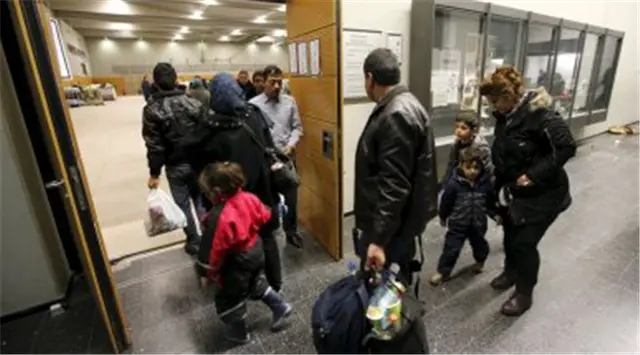The German cabinet approved on Wednesday Germany's first-ever bill aimed at integrating refugees.
Presenting the new law, German Chancellor Angela Merkel underlined both the supportive and punitive elements of the bill, promising Germany would be a country that makes migrants "a good offer," but at the same time with the expectation "people take up that offer so that integration can work."
Merkel made the comments at a press conference on Wednesday morning in Meseberg, where her coalition government had gathered on Tuesday for a summit to iron out final details of the law.
Under the motto "promote and demand", the integration law defines state assistance for refugees coming to Germany, but also elaborates on their duties and details consequences for refugees who fail to make efforts to become a part of German society.
Asylum applicants would be able to apply for jobs in regions with low unemployment, according to the regulation. Until now, refugees are allowed to accept a job only if there is no suitable applicant from Germany or other EU countries available for the advertised position.
Refugees undergoing vocational training in Germany would automatically be permitted to stay in the country. After finishing the training, their visa would be extended for six months, so they could look for a job. Migrants finding work during this period could stay on in the country for at least two more years.
In addition, the age limit for the start of a vocational training has been abolished.
The German government has also promised refugees more extensive and earlier access to integration courses. However, officials could reduce social benefits for refugees who do not want to participate in integration programs, such as language courses.
If an asylum seeker wants a residence permit, then he or she would have to prove sufficient language skills and a secure livelihood.
A refugee with an excellent command of the German language and capable of meeting their own needs would receive a permanent visa within three years. The usual procedure requires an applicant to spend at least five years before applying for a permanent visa.
Germany's ruling coalition agreed on the introduction of an integration act in April after months of disputes over the refugee crisis, which saw over one million refugees arrive in Germany last year.
"I think it is a milestone that the government has agreed on an integration law," Merkel told reporters on Wednesday, describing the bill as a major progress towards integrating refugees in her country.
Sigmar Gabriel, vice chancellor and head of the Social Democratic side of Merkel's coalition, also underlined the tough line the law takes, calling it a "real paradigm shift" in Germany.
"In a few years this law will be seen as a first step towards an immigration law," he said.
(APD)
 简体中文
简体中文

